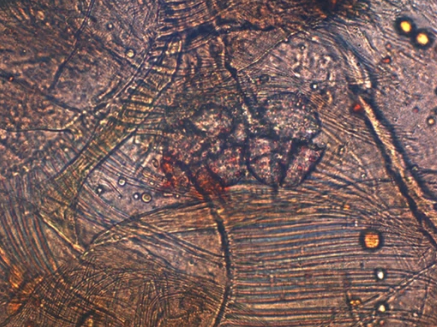Common crustacean ‘can break down microplastics in days,’ alarming scientists
Microscopic pieces of plastic could be entering food chain in previously undetected way

Your support helps us to tell the story
From reproductive rights to climate change to Big Tech, The Independent is on the ground when the story is developing. Whether it's investigating the financials of Elon Musk's pro-Trump PAC or producing our latest documentary, 'The A Word', which shines a light on the American women fighting for reproductive rights, we know how important it is to parse out the facts from the messaging.
At such a critical moment in US history, we need reporters on the ground. Your donation allows us to keep sending journalists to speak to both sides of the story.
The Independent is trusted by Americans across the entire political spectrum. And unlike many other quality news outlets, we choose not to lock Americans out of our reporting and analysis with paywalls. We believe quality journalism should be available to everyone, paid for by those who can afford it.
Your support makes all the difference.A species of small crustacean is able to break down microplastics into tiny particles in just a matter of days – much faster than previously estimated, scientists have said.
Until now, the breakdown of plastics in marine environments had largely been believed to occur mainly through slow processes such as being smashed apart by wave action, and decaying through prolonged exposure to sunlight.
But researchers at University College Cork (UCC) in Ireland have discovered that a “very common” invertebrate found in freshwater streams is able to rapidly break down microplastics (pieces smaller than 5mm) in less than 100 hours, until the fragments become “nanoplastics”, which are pieces measuring less than one micrometre.
The study’s leader, Dr Alicia Mateos-Cardenas, from UCC said: “We have found that the freshwater amphipod, a small crustacean called Gammarus duebeni, is able to fragment microplastics into different shapes and sizes, including nanoplastics, in less than four days.
“Whilst this species lives in Irish streams, they belong to a bigger animal group of invertebrates commonly found around the world in freshwaters and oceans.
“Our finding has substantial consequences for the understanding of the environmental fate of microplastics.”
The microplastics are fragmented by freshwater invertebrate animals as part of their digestive process.
But the discovery is not necessarily good news about the plastic waste clogging oceans and waterways.
The researchers described their findings as “alarming”, and said that while microplastics are known to regularly become stuck in the guts of seabirds and fish, current understanding suggests that the smaller nanoplastic particles could go further and penetrate cells and tissues where their effects could be much harder to predict.
“The findings that such a common invertebrate animal can rapidly produce vast numbers of nanoplastics is particularly worrying for researchers,” the authors of the study said.
Dr Mateos-Cardenas said: “These invertebrates are very important in ecosystems because they are prey for fish and birds, hence any nanoplastic fragments that they produce may be entering food chains.”
“The data in this study will help us to understand the role of animals in determining the fate of plastics in our waters, but further research is urgently needed to uncover the full impact of these particles,” she said.
The study is published in the journal Scientific Reports.
Join our commenting forum
Join thought-provoking conversations, follow other Independent readers and see their replies
Comments